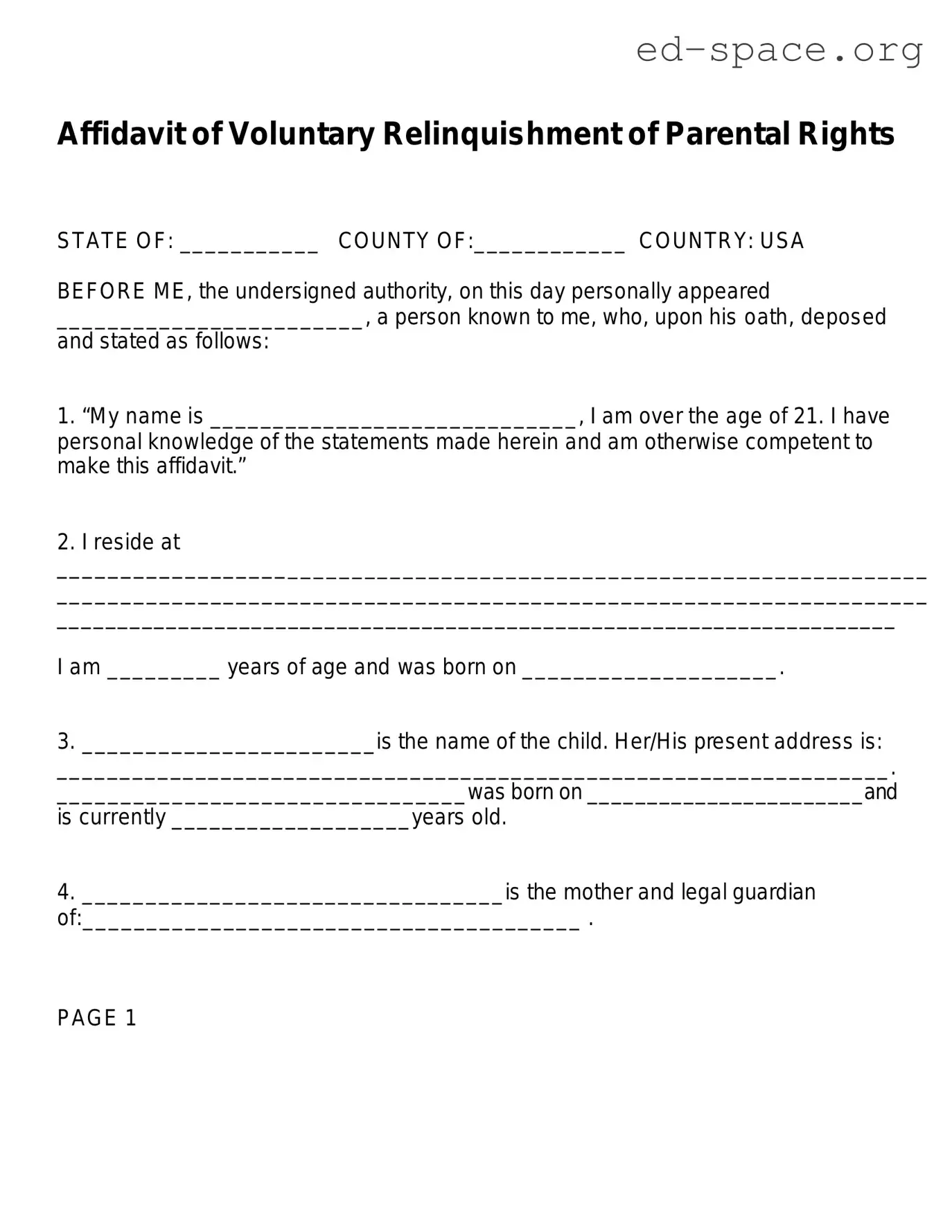
8. ____________________________________________ is biological mother and
current legal guardian of___________________________________
and resides at
______________________________________________________________(full
address: street, city, state, zip).
9. I have been informed of parental rights and duties and herein acknowledge both the
nature and extent of these rights and duties and my relinquishment of said rights and
duties.
10. I am aware that my relinquishment of parental rights with respect to
_____________________________________is irrevocable (beyond the period of 11
days set forth in paragraph #11).
11. I acknowledge my right, which is evidenced by my execution of this Affidavit, to
revoke this relinquishment if done so before the 11th day after the date of this Affidavit.
12. Should I choose to revoke this relinquishment, I understand that my revocation is to
be communicated to ____________________________________(mother) at
___________________________________________, with telephone number
(____) _________________________________ .
I understand that, to revoke this relinquishment, I must sign a statement witnessed by
two (2) credible persons and verified before a person authorized to take oaths. I
understand that this statement must
be delivered to _________________________________(mother) at the above
address and that a copy shall also be filed with the Clerk of the Court in which the suit
for termination of the parent-child relationship has been filed, if applicable.
PAGE 3




